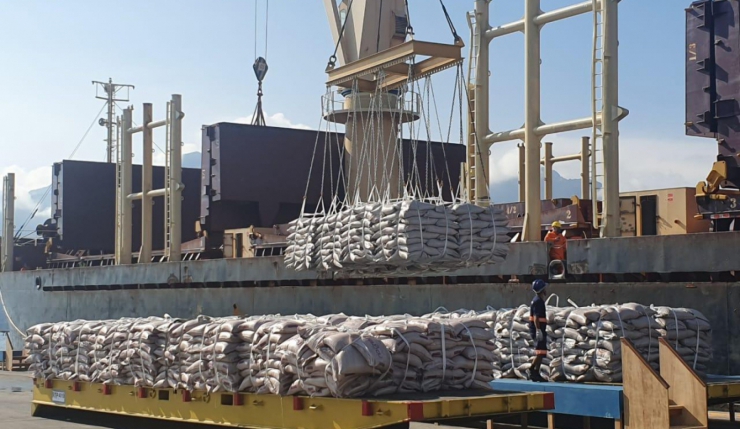São Paulo – Brazil ran a USD 6.1 billion surplus in trade with the Arab League in 2020. The surplus is the difference between exports and imports. The result accounts for 12.2% of the USD 50 billion all-time record surplus Brazil reached throughout the year. It’s also a 16.2% increase from the surplus reached in Brazil-Arab League trade in 2019, as per figures from the Arab Brazilian Chamber of Commerce (ABCC).
The entity reports that Brazil’s exports to the bloc of 22 countries in the Middle East and North Africa (MENA) generated USD 11.47 billion in revenue, down 6.3% from 2019. The decline, however, was lower than in other relevant trade partnerships, such as the United States (-23.7%) and Mercosur (-17.7%).
The performance of exports keeps the Arab League among Brazil’s top three foreign trade partnerships, only behind China and the US. It also asserts the region as the second largest destination of agribusiness exports, which were a highlight again.
Brazilian sugar was the most demanded product (revenue at USD 2.87 billion, up 32.5% from 2019), followed by poultry (USD 1.9 billion, down 11.7%), iron ore (USD 1.4 billion, down 22.3%), maize (USD 1.1 billion, up 3.1%), and beef (USD 968.03 million, down 18.2%). Top destinations were the United Arab Emirates (USD 2 billion, down 8.7%), Saudi Arabia (USD 1.89 billion, down 6.7%), and Egypt (USD 1.7 billion, down 4%).
ABCC president Rubens Hannun believes the surplus increase in trade with Arabs and the relevant performance of sales to these countries in 2020 asserts the strategic importance of the Arab League in Brazil’s production sector. Hannun stresses that, despite the 6.3% decline in revenue, the demand from the bloc remained steady throughout last year.
The executive says that the decline must be analyzed in a situation where the world demand for foodstuffs, particularly from Brazil, was boosted due to the pandemic. This competitive situation has made the Arabs pay slightly higher year-on-year average FOB prices per tonne of Brazilian products.
“The countries that depend on foods produced outside their territories, such as the Arabs, had to actively act to maintain their stocks in 2020, facing a fierce competition from China, unavailability of containers for meat transportation, the discontinuation of some food chains around the world, and other restraints,” he points out.
In a bid to assure the access to foodstuffs, the Arabs has sought out food products across the world. Hannun stresses that, despite the extremely competitive situation, there was no report of breach of contract by Brazilian suppliers over the year. But the pandemic has significantly reshaped trade in the region, opening up new markets and changing demand in others.
Algeria, for example, purchased USD 1.19 billion in 2020, up 16.2% from 2019. The North African country usually posted a surplus in its trade relation with Brazil, but this was reversed in 2020. Morocco, which usually ranks among the top ten markets, in 2020 purchased 43% more than in 2019 (USD 671.28 million) and now ranks seventh.
Sugar has become again the most demanded product by the Arabs, edging out poultry. The commodity accounted for 25% of total revenue at USD 2.8 billion, up 32.5% from 2019, showing that Brazilian sugarcane industry, which is more automated that its competition in India and Thailand, managed to maintain a stable trade flow and ended up taking a greater share of the Arab market.
Soy has been in higher demand (USD 323 million, up 68.7%) as well as maize (USD 1.1 billion, up 3.1%), driven by the Arabian Gulf. The ABCC noticed that the closure of food services in most Arab countries due to local lockdowns led portioned products usually sold to restaurants to adapt to be sold in supermarkets and be delivered at home, as well as the high demand for fruits in all markets in the region. Hannun believes that, for the Arabs, the pandemic has increased the need to strengthen their cooperation with Brazil in food security.
Translated by Guilherme Miranda




